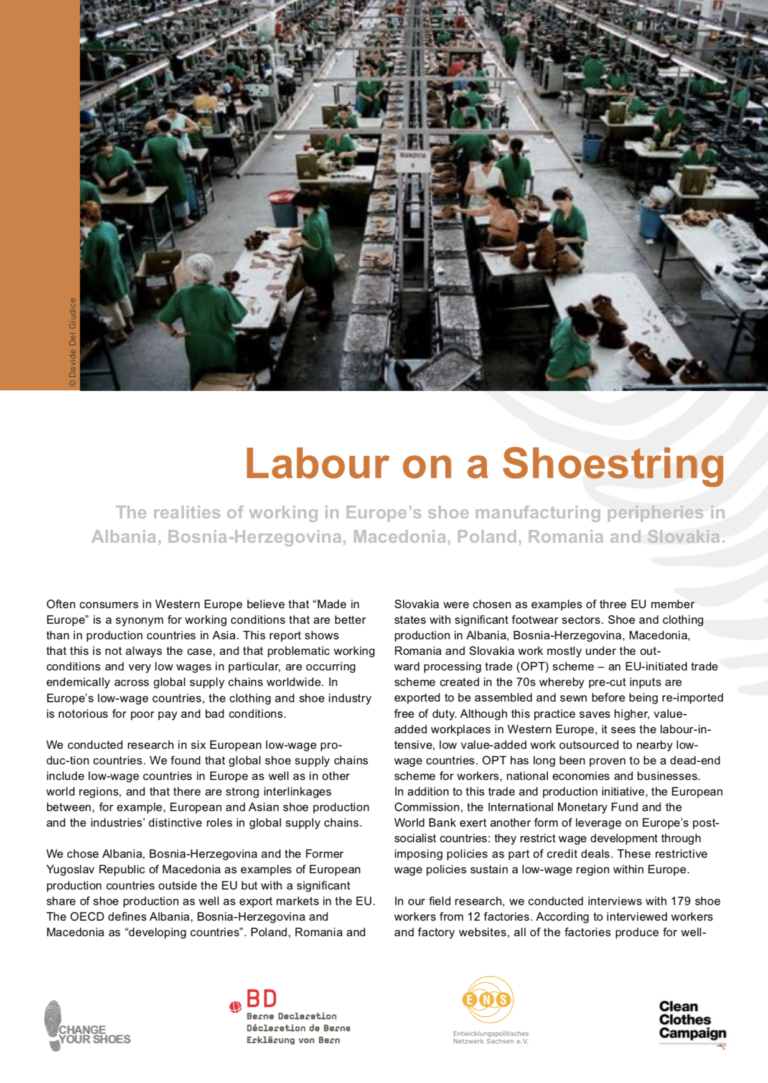Often consumers in Western Europe believe that “Made in Europe” is a synonym for working conditions that are better than in production countries in Asia. This report shows that this is not always the case, and that problematic working conditions and very low wages in particular, are occurring endemically across global supply chains worldwide. In Europe’s low-wage countries, the clothing and shoe industry is notorious for poor pay and bad conditions.
They conducted research in six European low-wage production countries. They found that global shoe supply chains include low-wage countries in Europe as well as in other world regions, and that there are strong interlinkages between, for example, European and Asian shoe production and the industries’ distinctive roles in global supply chains.

